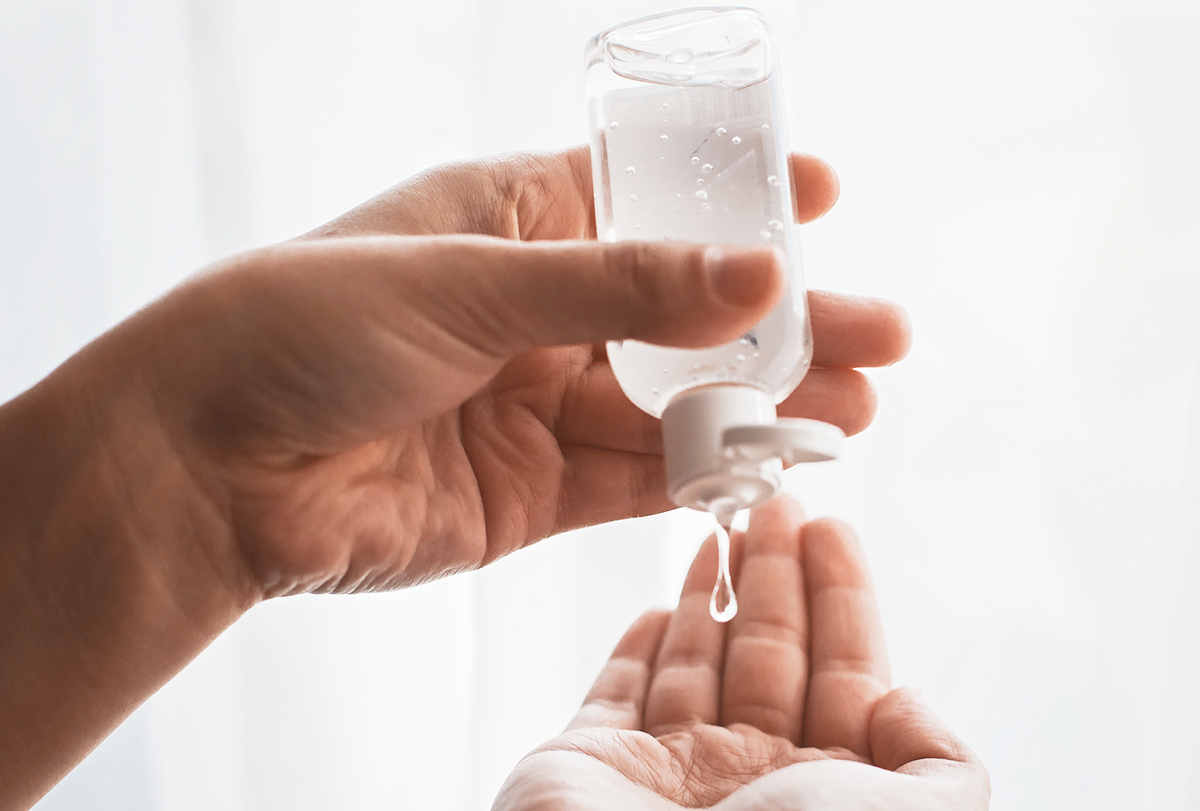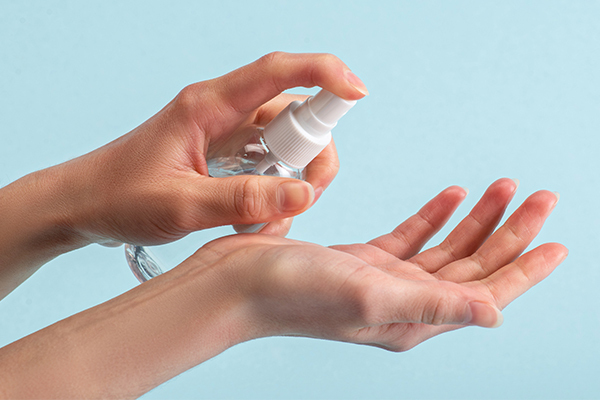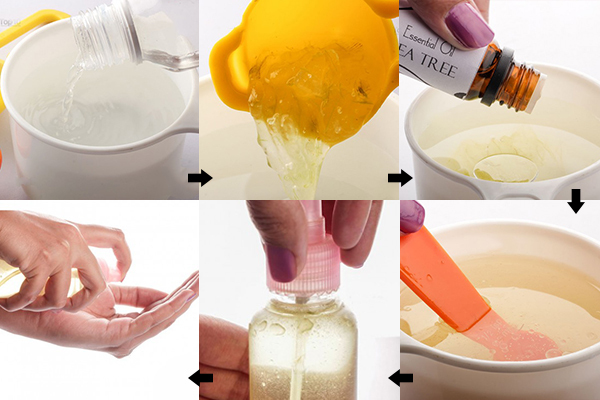In this article:
The COVID-19 pandemic has brought significant changes to people’s day-to-day lives. The recent boost in sales of hand sanitizers and soaps indicates that the past year has finally taught people the importance of hand hygiene.

Your hands are the most overused parts of the body. They come in contact with almost every surface around you and get contaminated with the germs, dust, and other impurities on it.
Using the same unclean hands to touch your face and eat can transfer the germs to your nose and mouth, through which they can enter your body and cause infections. Thus, it is crucial to keep them clean in order to protect yourself from diseases. (1) The best way to do this is by washing your hands with clean water and soap for at least 20 seconds. (1)
Since running water is not accessible everywhere, it is recommended to carry a hand sanitizer with you when venturing outdoors. A hand sanitizer is an alcohol-based solution that contains at least 60% ethyl alcohol. (2) It is an efficient, on-the-go solution to cleanse your hands of germs. (3)(4)
However, most store-bought hand sanitizers contain harsh chemicals that may be detrimental to your health in the long run. Fortunately, you can easily make hand sanitizers that are free of toxins at home.
DIY Nontoxic Homemade Hand Sanitizer

An effective hand sanitizer should contain 60%–90% of alcohol along with some additives. Here’s a simple recipe that you can follow to make a nontoxic but effective hand sanitizer at home.
Ingredients You Need to Make Hand Sanitizer at Home:
1. 90% ethanol
The Center for Disease Control (CDC) recommends cleaning your hands with ethanol-based hand sanitizers in the absence of soap or water. At high concentrations, ethanol can destroy the protective protein envelopes of most microbes, (5) effectively killing them. It may even inactivate the SARS-CoV-2 virus responsible for the current pandemic.
Note: Ethanol-based hand sanitizers are not meant for ingestion. Swallowing more than two pumps of a bottle can cause severe toxicity and even death. (5)
2. Aloe vera gel
Aloe vera gel is a natural disinfectant and contains potent antimicrobial properties. Moreover, it is a moisturizing agent (6) that may help counter the skin dryness caused by ethanol.
Aloe vera gel also helps bind your homemade sanitizer together and thickens it.
3. Tea tree oil
Tea tree oil exhibits broad-spectrum antimicrobial properties. (7) It is used in soaps and hand sanitizers to help kill resistant pathogens. (8)
4. Spray bottle
A medium-sized spray bottle is used to store the homemade sanitizer.
5. Funnel
A small funnel should be used to avoid spilling the sanitizer while pouring it.
Directions for Making Your Own Hand Sanitizer:

- Take 2 cups of ethanol and 1 cup of aloe vera gel in a bowl.
- Add 5 drops of tea tree oil.
- Mix the ingredients well till they are thoroughly blended.
- Using a funnel, pour this mixture into a medium-sized spray bottle.
- Pour some of this handmade sanitizer on your palms, rub it all over your hands, and let them air-dry.
Caution: Excessive use of any sanitizer can make your skin prone to developing hand eczema. Sanitizers should be used only when the hands are very soiled. Prefer using a gel-based sanitizer over an alcohol-based one.
Risks of Prolonged Use of Commercial Hand Sanitizers
Many long-term risks are associated with the use of commercial hand sanitizers, including the following:
- Hand sanitizers are mostly made up of alcohol. Alcohol is a well-known dehydrating agent that can irritate or dry up the sensitive skin of your hands. Some people experience itching, burning, and skin peeling on their hands after using hand sanitizers.
- Getting hand sanitizer in your eyes can lead to a burning sensation or even eye damage. When using hand sanitizers, take extra caution around children who may accidentally splash or rub the sanitizer into their eyes.
- Some hand sanitizers contain triclosan as an additive. Triclosan is a potent antimicrobial agent used to treat infections caused by bacteria (such as Salmonella and E. coli). Widespread and repeated use of triclosan may give rise to resistant strains of pathogens that are immune to antimicrobial chemicals. This can lead to severe consequences for public health. (9)
- Scented hand sanitizers may contain toxic chemicals such as phthalates. These chemicals can interfere with your body’s endocrine system and disrupt your hormone levels. Avoid using sanitizers that contain artificial fragrances.
Final Word
Soap and water remain the best way to clean your hands of unwanted germs and pollutants. However, hand sanitizers are a useful solution to carry around with you. Ensure that you are not allergic to any ingredients in the recipe before making a homemade sanitizer.
- Was this article helpful?
- YES, THANKS!NOT REALLY


